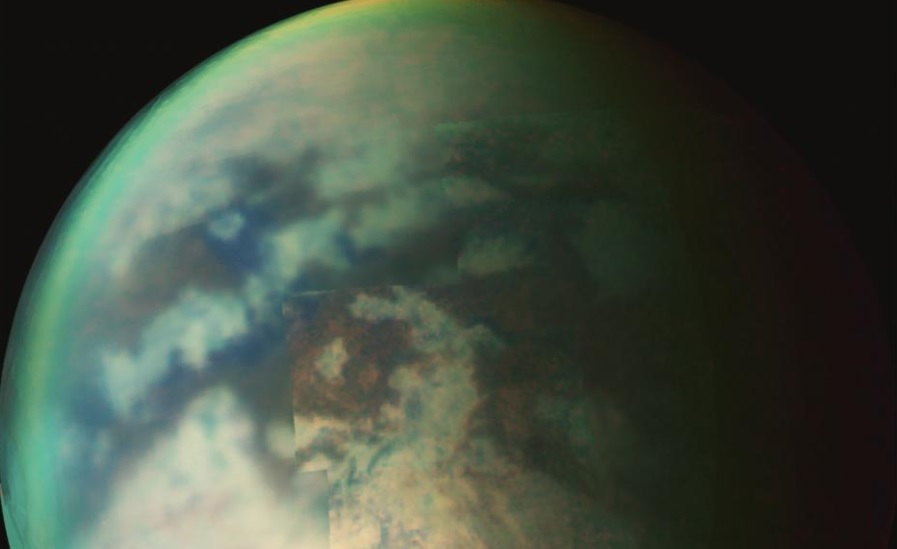Scientists have learned a lot about Saturn’s moon Titan thanks to NASA’s Cassini spacecraft, which orbited the planet for well over a decade before NASA, and the ESA had to pull the plug in 2017. The mission was a massive success, and it’s still yielding new discoveries today.
Titan, which is the only other world that we know of in our solar system that supports liquid on its surface, is well known for its colossal lakes that are filled with hydrocarbons, but it’s the towering structures on the shores of those lakes that are the subject of a new research effort published in Nature Geoscience.
In contrast to most lakes here on Earth, many of the lakes found on Titan’s surface are surrounded by steep ridges stretching hundreds of feet into the sky. Exactly how those structures formed is a question scientists are eager to answer, a new model suggests a possible explanation.
Using radar data from Cassini, scientists have built computer simulations that show how explosions of warming nitrogen within Titan’s crust could have formed such basins. It’s possible, the researchers say, that liquid nitrogen, enduring periods of cooling and heating thanks to the greenhouse effect from Titan’s atmosphere, could have heated rapidly enough that, when it vaporized, it caused an explosion in the crust and formed craters.
In this hypothetical scenario, the craters became the perfect places for raining hydrocarbons to pool, laying the groundwork for the lakes we see covering the moon today.
“This is a completely different explanation for the steep rims around those small lakes, which has been a tremendous puzzle,” Linda Spilker of NASA’s Jet Propulsion Laboratory explains. “As scientists continue to mine the treasure trove of Cassini data, we’ll keep putting more and more pieces of the puzzle together. Over the next decades, we will come to understand the Saturn system better and better.”








